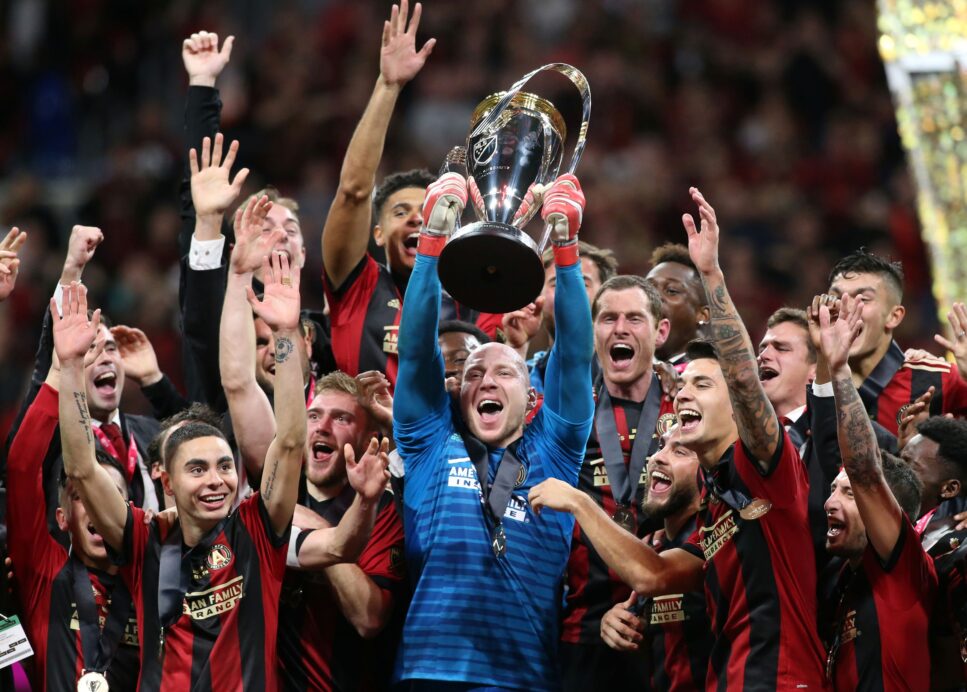MLS was bound to get a new playoff format at some point.
The league is expanding and within a few years there would eventually be a time when the now-old playoff format would feel too small for the size of the league.
But, introducing a new format for the 2019 season is too soon and it dilutes the competition before more teams come into the league.
With MLS in expansion mode, the playoff format that saw the top six sides make it to the postseason was going to be outdated before too long.
Altering the way the playoffs work has been on MLS’s radar, with commissioner Don Garber saying as much on the eve of MLS Cup during his annual State of the League address.
“There’s been lots of talk about changing the playoff format. We’ve been looking hard at it, we’re going to be talking to our board about it next week and my guess is that we’re probably going to end up with something that’s a little bit different than what we have now,” Garber said.
“The idea here is to continually work on making the regular season more and more important so that winning in March is as important in winning in September or October. And our playoff format the one that we’re evaluating, and I think it’s really going to place a really, really high emphasis, strong emphasis on our regular season.”
As Garber said, the main goal of changing the playoffs is to increase emphasis on the regular season.
On one hand, the new format does this by making home -ield advantage mean so much with the single-elimination format and the first-round bye granted to the top seed.
On the other hand, it dilutes the competition by inviting so many teams to the party.
A whopping 58% of teams will make it to the postseason until the league expands again. That’s the highest percentage of any of the major sports.
The NBA sends 53% of its teams to the playoffs, the NHL 51% (soon to be an even 50% when the league adds its Seattle franchise), the NFL 37.5%, and MLB only a third.
Even when Miami and Nashville come along to swell MLS to 26 teams, the percentage is still slightly higher than the NBA. It won’t be until Austin and an unknown 28th team come along that only half the teams make it, but that likely won’t happen until at least 2022.
With that in mind, why did MLS rush to make the change? They could have kept the current format, which was working just fine.
Sure, the FIFA international breaks got in the way and the entire thing felt a bit dragged out, but the competition was exciting and brought in plenty of cash.
They could have banked on this format for another couple of seasons before introducing an expanded field and a single elimination format.
MLS would have been perfectly fine waiting until team No. 28 began play to alter the format. At that point, adding a seventh team to the playoffs would mean half the sides make it, the same as it wouldn’t have been if no changes came for 2019. That’s not egregious and still in line with the other American sports.
None of this means the new format is completely awful. There are plenty of positives to come out of it that will be plenty enjoyable. The single-elimination format is exciting and will create a March Madness-like feel.
The playoffs will be shorter and over before the middle of November. FIFA’s October and November international breaks won’t get in the way and the whole thing will wrap up before the harsh weather sets in.
But those changes would still be great in a couple of years when the competition wouldn’t feel as diluted.
There was no reason for MLS to step in and make premature alterations to an already successful system. Change would be needed eventually and everyone knew it was coming, but this particular change is arriving too quickly.

